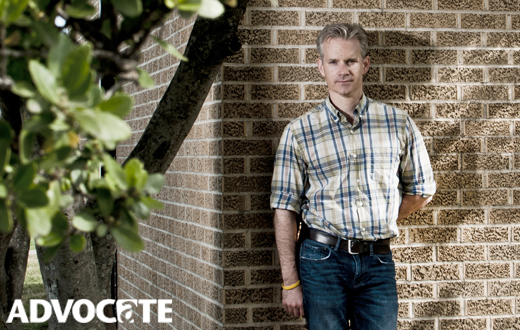It’s a lot harder for property owners to brush off code violations when a city attorney is threatening to take them to court. That’s the idea behind Dallas’ community prosecution program, even though its goal is to solve problems long before they reach a lawsuit.
Patrick Sanders is new to the job and oversees the Lake Highlands portion of the Northeast Police Division. He’s hoping to make a difference, one crime-infested area at a time.
Remind us what a community prosecutor does.
For lack of a better term, we do what we call “strategic code enforcement,” so we address egregious code violations. That dovetails with the Dallas Police Department and what they’re trying to do. The nexus between what we’re trying to do and what DPD does focuses on the broken window theory of crime. Simply put, where you have bad properties, you have criminal activities. My understanding of how community prosecution got started in the City of Dallas is the DPD came to the city and said, “We’re good at arresting people, but we can’t arrest these properties, and even after we arrest these people, the properties continue to be havens for crime.” The trend seems to be that when you get these properties cleaned up, it also helps remove the criminal element that may be in and around that property. So to clean a drug house up, and then you have a family living there, that’s the kind of thing we like to see.
How do you make that happen?
All the community prosecutors in the City of Dallas are assistant city attorneys. We go directly to ownership because at the end of the day, it’s the owner who’s responsible for the property. We want these owners to be putting their money back into these properties to fix them up, and not use it fighting us in court. However, we have a couple of tools in our toolkit — we have authority to bring a civil suit against these owners for failure to maintain their properties. The threat of many tens of thousands, if not hundreds of thousands of dollars in fees can be a powerful motivator to get their properties up to code.
What properties in Lake Highlands are your focus?
We try and pick a smaller area within the police division where we feel like we can get the most bang for our buck. We focus intensively for roughly six months and see how much work we can get done by getting code problems into compliance and seeing if we can get crime stats down. We work with code enforcement and work with the police department, so it’s a team effort. My primary focus right now is Whitehurst Drive at Skillman — Fair Oaks and Ferris Branch. It’s been a traditionally high-crime area. There’s a lot of apartment complexes and also Skillman Crossing retail center. All of us are paired with a code enforcement officer — they are really the experts. We do both interior and exterior inspections. The joke is that attorneys, we speak in language and writing; the code enforcement officers speak through their pictures. The pictures don’t lie, and the code enforcement officers’ pictures are time-date stamped.
And property owners are responsive?
When the owners realize: a) that the city is taking an interest in their property, and b) there are legitimate problems that need to be addressed, many of them are happy to do voluntary compliance. It’s a powerful motivator to go to an owner and say, “We want to work with you, but here’s what happens if you don’t work with us.”
Have you taken anyone to court?
I have not had to go to court, but I’ve had colleagues around the city who have. The idea is problems can get solved more quickly and easily in the community system as opposed to in the court system when everybody lawyers up and nobody is talking to anybody except in that setting.
What drew you to this job?
I grew up in the Plano area, and had been living in Washington, D.C., for almost seven years. My family is here, and I was looking for new opportunities. I was fortunate to stumble onto this. It’s public service and the ability to sort of effectuate a change that you can see. It may not be immediate, and it’s usually not, but one of the things that drew me to the job was speaking with my current boss. He said, “It’s a wonderful feeling when you can go down the street and see a property that you knew was a haven for criminal activity or a threat to the safety and welfare of the community, and now you look at it and that property is cleaned up.” It makes me feel like I’ve actually accomplished something. I worked for law firms in the past, and to the extent you accomplished anything, it was much more esoteric. At the end of the day I thought, “I don’t want to be spending my time doing this.”
As I’m sure you’ve already learned, Lake Highlands neighbors are very engaged. How can they help you?
If people have concerns about their neighborhoods, whether it’s code violations or criminal activities, there are many agencies they can contact — 311 for code, 911 for crime — but I also want to know about it. I can’t guarantee an outcome, but I at least want to know if there’s a problem.
Contact Patrick Sanders at 214.601.1091 or patrick.sanders@dallascityhall.com.






